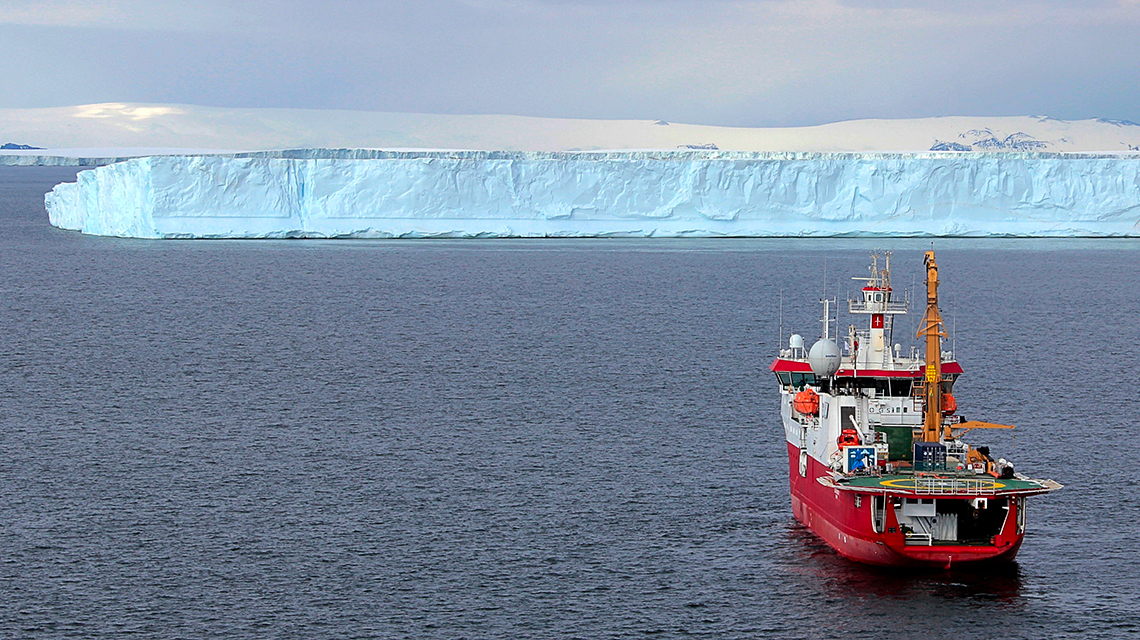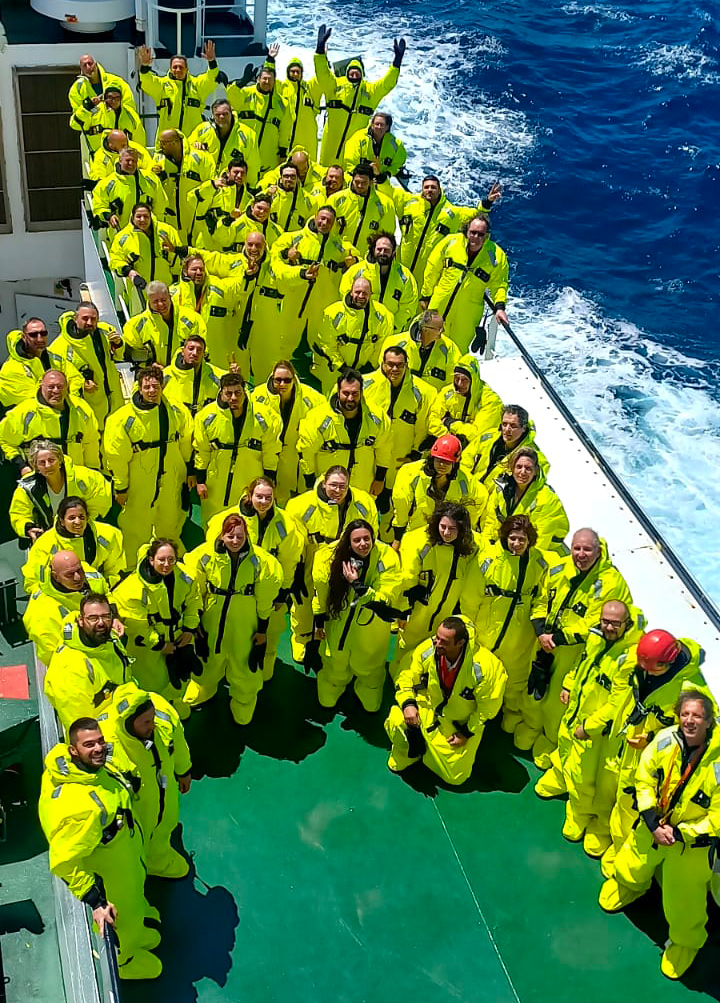Italian National Agency for New Technologies, Energy and Sustainable Economic Development

Antarctica: Icebreaker Laura Bassi departs for the South Pole
The Italian research vessel Laura Bassi left the port of Lyttelton, in New Zealand, heading to Antarctica in support of research activities linked to three different projects on the study of physical and biogeochemistry of specific Antarctic areas. This marked the start of the oceanographic campaign of the 39th expedition to Antarctica, funded by the Ministry of University and Research (MUR) as part of the National Antarctic Research Program (PNRA), coordinated by the Cnr for scientific activities, ENEA for planning and logistics and OGS - National Institute of Oceanography and Experimental Geophysics – for technical and scientific management of the icebreaker Laura Bassi. The ship will circumnavigate the entire Ross Sea and conclude its Antarctic mission in New Zealand in March 2024, after 60 days.
This year the activities on board the Laura Bassi research vessel, owned by the National Institute of Oceanography and Experimental Geophysics (OGS), will take place in a single round trip from New Zealand to Antarctica, carrying 39 members of the research staff and 23 members of the sailing crew. For the first time the mission will be conducted jointly with the New Zealand Antarctic project team, which comprises 12 people.
The icebreaker's voyage began last November 25, when it left the port of Naples to navigate approximately 40 days. The icebreaker crossed the Red Sea and the Gulf of Aden, adopting appropriate anti-piracy measures and sailing through a safety corridor under an umbrella protection provided by military ships of various Countries.
At the end of December it arrived in Lyttelton to embark crew and staff of the research campaign. Once loading operations were completed, the ship left the port of Lyttelton bound for the Ross Sea.
The research activities will concern the project “Tenore” (Terra Nova bay polynya high Resolution Experiment), coordinated by Giannetta Fusco at the University of Naples “Parthenope” for the study of polynyas (ice-free regions within the sea ice pack) of Terra Nova Bay; the project “Signature” (PhySIcal and bioGeochemical traciNg of wATer masses at source areas and export gates in the Ross Sea and impact on the SoUtheRn OcEan), coordinated by Pierpaolo Falco at the Polytechnic University of Marche which aims to analyze the main water masses of the Ross Sea from a biological, chemical and physical point of view and investigate their spatial and temporal variability; the project “MORsea” (Marine Observatory in the Ross Sea), coordinated by Giorgio Budillon at the University of Naples “Parthenope” and Pasquale Castagno at the University of Messina for the management of the network of marine observatories established since 1994 in the Ross Sea.
In addition to the scientific activity, between 21 and 26 January the ship will also unload the materials necessary for the annual operation of the Mario Zucchelli Antarctic base, while the return to the port of Lyttelton in New Zealand is scheduled for the first days of March 2024.
The icebreaker will transport two refrigerators containing ice cores extracted as part of the international Beyond EPICA project, coordinated by Carlo Barbante, director of the Institute of Polar Sciences of the CNR. The project aims, through the analysis of Antarctic ice, to go back 1.5 million years in time to reconstruct ancient climate conditons and acquire information on temperature and concentration of greenhouse gases in the atmosphere.
This year the ship will also support the marine studies of the New Zealand scientific program by hosting 12 researchers from the country, a prestigious collaboration for the PNRA.
The icebreaker Laura Bassi
The N/R Laura Bassi is currently the only Italian icebreaker for oceanography capable of operating in polar seas, both in Antarctica and in the Arctic. It was purchased by the National Institute of Oceanography and Experimental Geophysics - OGS in 2019 thanks to funding from the Ministry of University and Research - MUR and operates to support the entire scientific community.
The main objective of the Laura Bassi is to provide scientific and logistical support to Italian polar missions and enable oceanographic and geophysical research by ENEA researchers and the National and European scienctific commmunity at a global and, in particular, polar level.
The Laura Bassi is a PC5 class icebreaker especially designed to best combine both cargo and research capabilities. It has a tonnage of 4028 tonnes, is 80 meters long and 17 meters wide, has a dynamic positioning system which guarantees high maneuverability and an accuracy in the order of 1 metre at a given point. The particularly robust planking structure allows it to operate in ice-covered seas without fear of structural damage.

